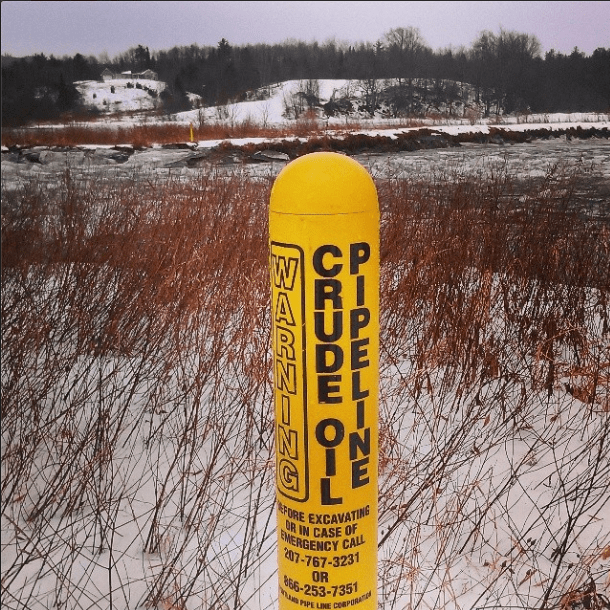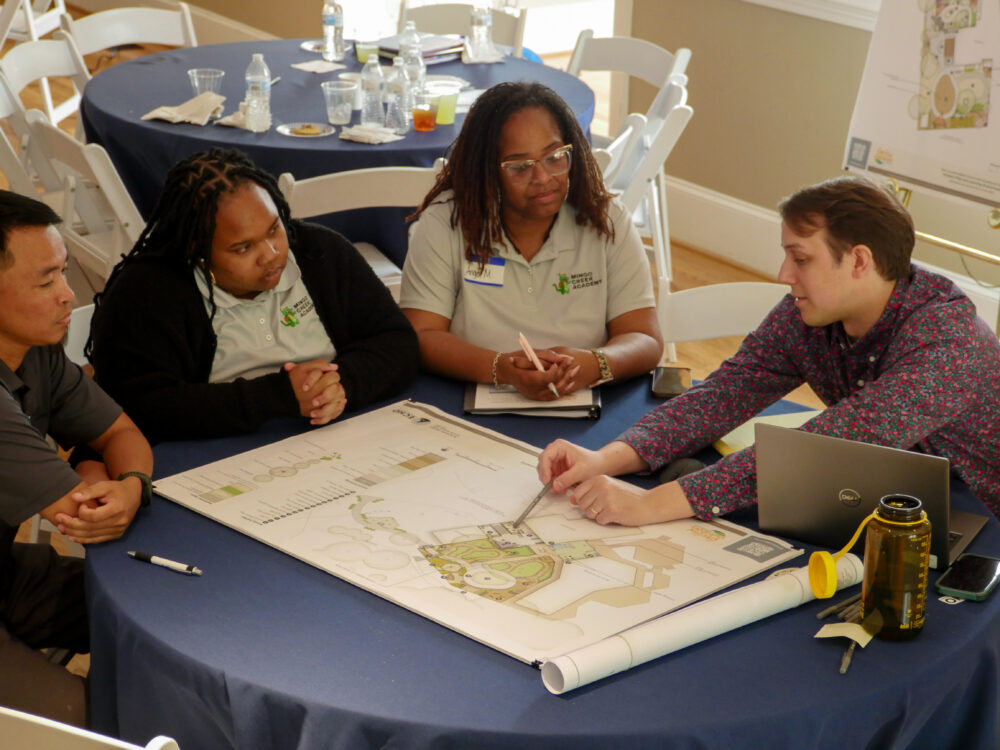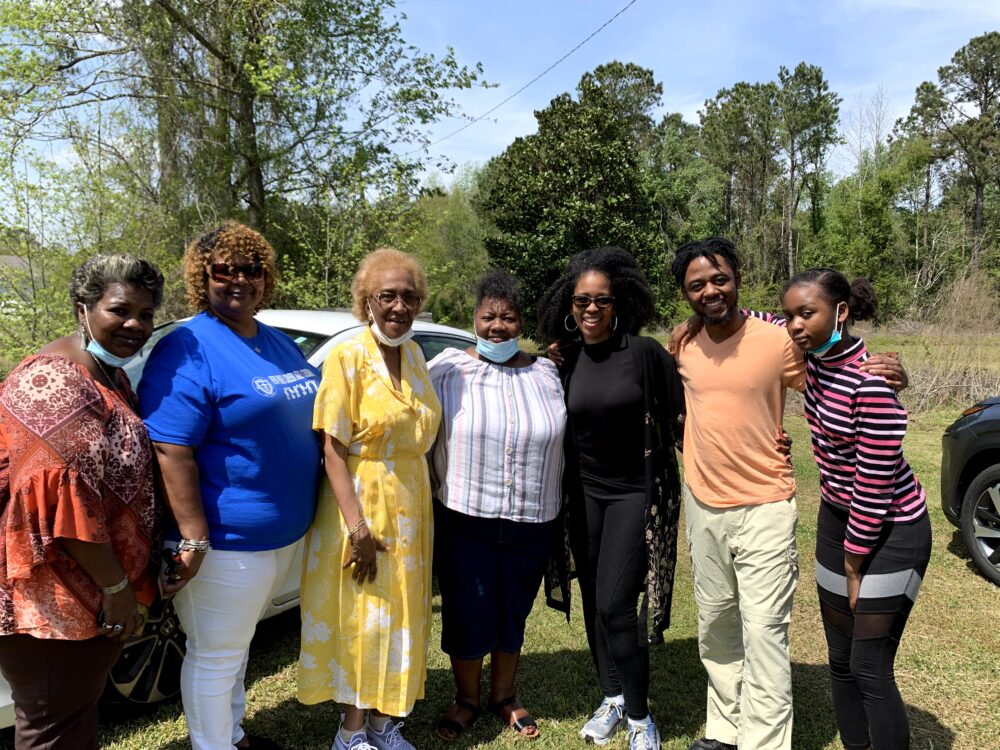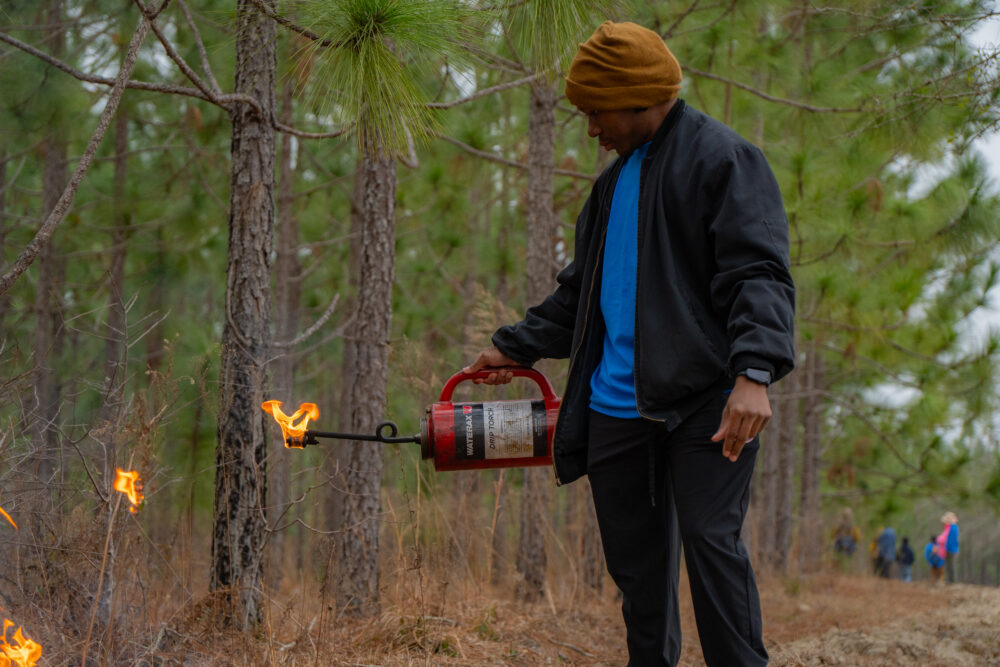We have much more to do and your continued support is needed now more than ever.
Students Trek the Portland-Montreal Tar Sands Pipeline
Guest Post by Brett Chamberlin
On Tuesday, NWF Campus Ecology Fellow Kaity Thomson began a week-long trek of the Portland-Montreal Pipeline, a WWII-era pipeline that Big Oil wants to retrofit to pump tar sands crude through Vermont, New Hampshire, and Maine.

For the last year, Kaity, an undergraduate at the University of New Hampshire, has been studying ecosystems at risk of contamination from a possible spill along the pipeline. “This hike is an opportunity to experience these ecosystems firsthand,” she said. Kaity plans to share her research findings with stakeholders along the route, “to bring decision-relevant information to the public so they can determine if they want to move forward with the pipeline proposal.”
While Kaity shares her findings with communities across the three states, I’m joining her to gather the stories of the places intersected by the pipeline. I’m Brett Chamberlin, a New Hampshire native and environmental activist. As we experience the ecosystems and communities along the pipeline, I’ll be working to share what we see and learn with you!
Kaity and I began our trek next to a foggy field in North Troy, VT. Right below our feet, hundreds of gallons crude oil every minute surged towards Canada. At present, oil from the Port of South Portland is pumped to refineries in Montreal. But the Portland-Montreal Pipeline Company put forward a plan to retrofit the line and reverse its flow in order to carry tar sands crude from the Alberta Tar Sands for export.
That proposal carries serious risks. For one, corrosive tar sands crude requires high heat and pressure to be pumped, making the likelihood of a spill far greater than with conventional crude oil. In the case of a spill, tar sands sink to the bottom of waterways, making cleanup significantly more challenging. Finally, the tar sands crude which would be transported by the pipeline would contribute to our society’s carbon crisis and the climate change that threatens our future on this planet.
Check back over the next week for more updates from our traverse of the Portland-Montreal Pipeline. For more updates, you can follow @99Brett and @KaityT18 on Twitter – and check out photos at www.instagram.com/99brett
Take Action
![]() Help protect moose from dirty fuels in the Northeast. Tell the State Department to stop the Northeast tar sands pipeline.
Help protect moose from dirty fuels in the Northeast. Tell the State Department to stop the Northeast tar sands pipeline.
About the authors
 Brett Chamberlin is a recent graduate of New York University, where he studied politics and journalism. A NH native, Brett has organized a variety of viral projects around economic and environmental justice issues. His writing and activism have been appeared on NHPR, The Nation, BuzzFeed, The Village Voice, and more. Brett is now working as a founder of the Post-Landfill Action Network, a nonprofit helping students end waste on campus. He’s also an avid twitter user at @99Brett
Brett Chamberlin is a recent graduate of New York University, where he studied politics and journalism. A NH native, Brett has organized a variety of viral projects around economic and environmental justice issues. His writing and activism have been appeared on NHPR, The Nation, BuzzFeed, The Village Voice, and more. Brett is now working as a founder of the Post-Landfill Action Network, a nonprofit helping students end waste on campus. He’s also an avid twitter user at @99Brett
 Kaity Thomson is pursuing a BSc in Environmental Science at the University of New Hampshire. Initially leaving home to study dance in New York City, Kaity quickly came to realize the importance of the natural landscape she left behind. Transferring home to NH, she was driven to understand the environment and learn how to effectively communicate its importance. Currently, Kaity is researching potential impacts of a tar sands pipeline in New England. Her research and outreach is supported by the National Science Foundation and National Wildlife Federation Campus Ecology Fellowship.
Kaity Thomson is pursuing a BSc in Environmental Science at the University of New Hampshire. Initially leaving home to study dance in New York City, Kaity quickly came to realize the importance of the natural landscape she left behind. Transferring home to NH, she was driven to understand the environment and learn how to effectively communicate its importance. Currently, Kaity is researching potential impacts of a tar sands pipeline in New England. Her research and outreach is supported by the National Science Foundation and National Wildlife Federation Campus Ecology Fellowship.





















